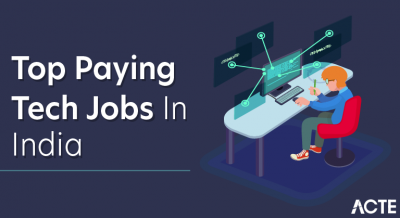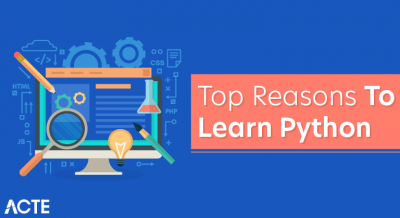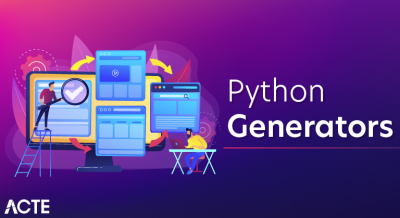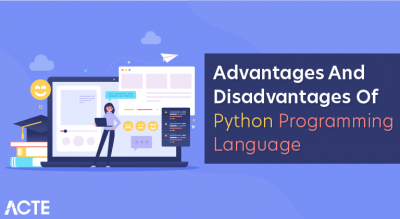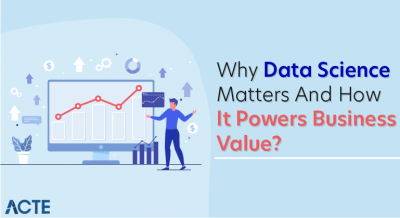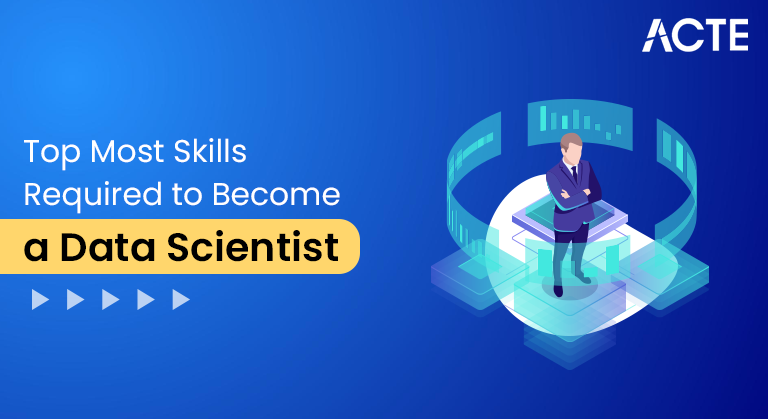
A data scientist is a professional responsible for collecting, analyzing and interpreting extremely large amounts of data. The data scientist role is an offshoot of several traditional technical roles, including mathematician, scientist, statistician and computer professional.
- Introduction of Data Scientist
- Tools for Data Scientist
- Features of Data Scientist
- Types of Data Scientist
- How does this work?
- Why do you want to be a Data Scientist?
- Data Scientist threats
- Trends for Data Scientist
- Benefits of Data Scientist
- Conclusion
Introduction to Data Scientist:
The emergence of big data has led to the emerging value of data science where planning and mathematical knowledge are considered to be the key skills to start a career as a data scientist. A collection of technical skills is helping to enter the data science industry which has led millions of students around the world to enrol in various online courses. With access to the internet, anyone can become an expert in the tools and skills needed to gain a place in the field of data science. As there is no barrier to acquiring technical knowledge, most students are expected to gain a comparable level of data science skills.
Therefore, to be a great data scientist, it takes more than being able to meet the technical requirements to isolate yourself from the crowd. Having worked with various data scientists on my journey to unity, I have learned that these personalities help build a great data scientist.
Tools used to develop Data Science:
As a developing sector, knowledge science incorporates a vast potential for growth. Recent discoveries and trends have created them completely different from major comes in additional than a way. to know the probabilities of this field, one should perceive the rising technologies within the science of information that examine the long run, and better.
1. AI
According to the CMO, forty seventh of digital organisations have reported having an outlined AI strategy in situ. AI or AI has been around for an extended time. It’s been accustomed to build communication technologies and client knowledge assortment easier for many years. because of the high speed of process and access to knowledge, it’s currently terribly targeted on your style. From voice and language recognition, like Alexa and Siri, to foretelling analytics and motorised vehicles, performance intelligence is growing speedily by innovating, providing a fight to businesses, and ever-changing the means corporations operate these days.
2. Cloud services
As banging knowledge is commonplace, it becomes a challenge to seek out solutions for low price savings and low cost power. This is often wherever cloud computing and services come back as a saviour. Cloud services aim to stay massive amounts {of knowledge|of knowledge|of information} at a lower price to address the problems encountered concerning data science retention.
3. AR / VR programs
AR stands for increased Reality, and VR stands for video game. This technology has attracted the eye of people and businesses around the world. The unpopular reality of taxpayers that we have a tendency to see once actually is aimed toward rising interaction between folks and machines. They produce knowledge mechanically with the assistance of machine learning and language process (NLP), that helps knowledge scientists and analysts discover patterns and generate intelligent shared knowledge. As reported by eMarketer, 42.9 million folks use VR, and 68.7 million folks use AR a minimum of once a month.
4. IoT
IoT refers to a network of assorted objects like folks or devices with completely different scientific discipline addresses and net connections. These things are units designed in such the simplest way that they convey with the assistance of net access. Sensitive sensors and metres, among different things, area unit simply many IoT awards and knowledge scientists aim to incessantly improve this technology so they will apply it to foretelling analysis. consistent with Fortune Business Insights, the IoT device market is predicted to achieve $ one.1 trillion by 2026.
5. Big Data
Big knowledge refers to ridiculous amounts of information which will or might not be created. These knowledge collections are unit large to be processed quickly with the assistance of ancient methods, thus advanced techniques need constant use. massive knowledge boasts technologies like black knowledge transfer and strong net security, which might not be doable while not you. sensible bots are the results of massive processing to investigate the desired info. consistent with massive knowledge that has been simplified, regarding ninety p.c of the world’s knowledge was created within the last 2 years alone, instead of within the long-standing time. Big knowledge will certainly modify the means businesses and customers read and act with technology in their daily lives.
6. Automatic machine learning
Automated machine learning is additionally referred to as AutoML and is currently a typical term. It’s currently recognized as an associate aid to developing higher machine learning models. consistent with Gartner, over forty p.c of information science jobs are machine-driven by 2020. The automation of this knowledge can shut the dearth of needed talent provided, like knowledge engineers, researchers, and knowledge scientists. corporations like Facebook area unit already enclosed.
7. Quantum Computing
Quantum computing may be observed in its early stages. Quantum computers are a unit expected to perform advanced calculations in seconds. fashionable computers are an unit unable to resolve these issues in such a brief time and should need a minimum of 100 years. Quantum Computing involves storing massive amounts of data in quantum bits or qubits, sanctionative them to resolve advanced calculations during a matter of seconds. massive corporations like Google have started researching this technology. However, it’s not a viable possibility immediately. Quantum computing is expected to be required over publically by 2022.
8. Digital Twins
The observation of digital twins aims to form material simulations within the digital world. it’s supports the thought that an object should exist within the world, and an object should exist during a digital world. This technology can make it easier for knowledge scientists to know the execs and cons of a specific device or system before it is used with the assistance of simulation.
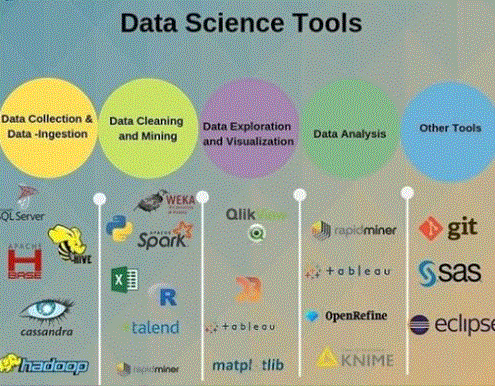
What Technical Skills Do You Need to Become a Data Scientist?
Without a solid foundation in mathematics and statistics, data scientists need to read and write with sophisticated mathematical modelling software and have a solid understanding and planning knowledge.
Below are seven key skills scientists of data:
Python programming. As the most popular and flexible programming language in the data science industry today, Python can manage everything from data mining to website design to embedded embedded systems, all in one integrated language. Pandas is a Python data analysis tool used for everything from importing data from Excel spreadsheets to data sorting by histogram or box structure. The library is designed for easy data manipulation, reading, compilation, and visualisation. To learn more about Python data mining, check out this complete guide.
R editing. R is an integrated suite of software for data manipulation, counting, and image processing. R is more common in educational contexts compared to Python. The software can use machine learning algorithms quickly and easily and provides a variety of mathematical and graphic techniques, such as straightforward and non-linear modelling, arithmetic testing, time series analysis, division, and integration.
Hadoop Arena. Hadoop is an open source software platform that allows data scientists to process large data sets across all computer systems using simple programming models. This is useful in situations where data volume exceeds system memory: for example, when collecting large amounts of data from multiple sources, or when data needs to be sent to different servers. The system is designed to scale from a single server to thousands of devices.
SQL data. SQL is a programming language targeted at a domain designed to manage and query data stored in a related website management system (a type of site that stores and provides access to related data points). You can use SQL to read and retrieve data from a website or update / add new data. Creating a SQL query is usually the first step in any test sequence.
Machine learning and AI. Few data scientists are truly skilled at machine learning; the prominent ones. Machine learning helps to analyse large amounts of data using data-driven algorithms and models and can perform important parts of an automated data scientist’s work automatically, such as cleaning data by removing recycling. Highly skilled data scientists are familiar with machine learning techniques such as supervised machine learning as well as supervised decision-making trees, and retreats. Bonus points if you know advanced machine learning such as native language processing, external acquisition, and recommendation engines. Learn more about the Springboard machine learning field here.
Viewing data. Data viewing is a visual representation of data using visual features such as charts, diagrams, maps, infographics, and more. It sits in the middle of technical analysis and visual storytelling. As big data becomes an integral part of a business, data recognition becomes an important tool in making sense of the amount of data produced on a daily basis. The data scientist should be able to visualise data using tools such as ggplot, d3.js, and Tableau.
Business strategy. Data scientists need the core business strategy: the ability to understand business problems and perform analytical perspectives from a solid crisis statement. This allows data scientists to build their own data cutting and dial-up infrastructure in a way that is useful to the organisation they provide.

Types of Data Scientist:
1) Machine Scientists
Mechanical scientists aim to explore new and emerging algorithms. They create such algorithms that often propose price strategies, products, patterns from big data inputs and demand forecasts.
2) Mathematician
Statistics apply to both theoretical and practical statistics intended for business purposes. Mathematicians have other important skills such as confidence intervals and data displays, which are not considered to have gained expertise in certain fields of data scientists.
3) Actuarial Scientist
Actuary scientists are in a unique position as their skills are based on data analysis to measure and control the outcome. Actuarial science requires a good understanding of mathematics and statistics.
4) Mathematician
Mathematicians have been gaining more acceptance in the corporate world because of their in-depth knowledge of applied statistics and practical research. Their divine services are sought after by businesses for development and analysis in a number of areas, such as asset management, supply chain, pricing algorithms, etc.
5) Data Engineers
Data engineers are responsible for designing, constructing and managing information captured by the organisation. They are entrusted with the task of creating a data management infrastructure to analyse and process data in accordance with the needs of the organisation.
6) Software Programming Analysts
Software programmers have the ability to calculate the use of editing. They use new programming languages such as python and r programming, to support visualisation and data analysis. They have the ability to automatically perform large data-related tasks to reduce computational time.
7) Digital Mathematics Adviser
Digital analytics professionals need technical talent and need smart business and marketing skills to be successful. Designing web pages to collect data and directing it to analytics tools and ultimately visualising the filtering, processing, and designing dashboard of key skills involved.
8) Employee Business Analysts
Business analysis is an art and science, and one will not be able to provide it to guide business intelligence or in-depth information obtained based on data analysis. Business statisticians specialise in important decision-making processes such as dashboard design, ROI. Analysis, high-level database design, ROI. Development, etc.
What Interpersonal Skills Do You Need to Become a Data Scientist?
All data scientists need a number of critical interpersonal skills to perform their task effectively.
Communication. Good communication skills are essential to the work of many data scientists. As a data scientist, you will need to understand the needs of a business or problem, consult participants for more data, and communicate important data details.
Telling stories. Mathematical calculations do not help when teams can do something about it, so storytelling skills are important in the form of oral communication and writing and viewing data. Good storytelling means that analytical solutions are conveyed in a clear, concise, and direct way.
Interaction. You will need to work with various teams in the organisation to understand their needs and compile their response to reach solutions. Depending on how special you are in your field, you may need to work with other data scientists, data designers, and data engineers.
Reading. Data technology and frameworks are emerging so quickly that it is futile to try to do well on any one. Rather than striving to achieve perfection, you are better at cultivating patience and self-control so that you can learn new things and learn new concepts quickly. Springboard trainers believe that one of the most important skills for those interested in data scientists is learning how to read.
- Identify data-analytics problems that provide great opportunities for an organisation
- Determining the correct and flexible data sets
- Collects large sets of structured and unstructured data from a variety of sources
- Cleaning and verifying information to ensure accuracy, completeness, and consistency
- Designing and using models and algorithms to dig big data stores
- Data analysis to identify patterns and trends
- Interpreting data to find solutions and opportunities
- Communication of outcomes to participants is used for visualisation and other means
working principle of Data Scientist
In simple terms, the job of a data scientist is to analyse the data for possible details.
Why a Data Scientist?
Data scientists are the main opponents of data, collecting and analysing large sets of formal and informal data. The role of data scientist includes computer science, mathematics, and mathematics. They analyse, analyse, and model data and interpret results to build effective systems for companies and organisations.
Data scientists are analysts who use their skills in both technology and social science to discover trends and manage data. They use industry knowledge, contextual understanding, existing scepticism – to find solutions to business challenges.
The work of a data scientist often involves creating the concept of dirty, random data, from sources such as smart devices, social media feeds, and inaccurate emails on a website.
Trends in Data Scientist
1. Big Data in the Clouds
Data is already being processed in bulk. The problem lies in collecting, marking, cleaning, editing, formatting, and analysing this large amount of data in one place. How does it collect data? Where can you store it and process it? How should we share ideas with others?
1. Data science models and practical intelligence are helpful. However, data retention is still a problem. It has been found that about 45% of businesses transfer their large data to cloud platforms. Businesses are increasingly turning to cloud services for data storage, processing, and distribution. One of the major ways to manage data in 2021 is the use of public and private cloud services for big data and data analysis.
2. Emphasis on Actionable Data
Where is data used in its raw, unstructured, and complex format if you do not know what to do with it? Emphasis on practical data that combines big data with business processes to help you make the right decisions.
Investing in expensive data software will not yield any results unless the data is analysed to determine which data can work. These are the details that help you understand the current state of your business, market trends, challenges and opportunities, etc. Active data empowers you to be a better decision maker and do business right. From organising business activities, facilitating workflow, and distributing projects between teams, the data that can be generated helps you to improve overall business performance.
3. Data As A Service- Trading Data With Markets
You should have seen the websites that embed Covid-19 data to show the number of cases in the area or the number of deaths, etc. This data is provided to other companies that provide data as a service. This data can be used by businesses as part of their business processes.
As it can lead to data privacy issues and problems, companies come up with procedures that reduce the risk of data breach or liability. Data can be moved from the seller’s place to the buyer’s premises with little or no disruption and data breaches of any kind. Data exchange in the statistics and data markets is one of the major trends in data analysis in 2021. It is called DaaS for short.
4. Use of Augmented Analytics
What are Augmented Analytics? AA is the concept of data analysis using AI, machine learning, and natural language processing to automate big data analysis. What is usually done by a data scientist is now done automatically to deliver information in real time.
It takes less time for businesses to process data and get information from it. From data preparation to data analysis, analysis, and visualisation, AI, ML, and NLP help professionals analyse data and make in-depth reports and predictions. Data from inside and out of business can be compiled using advanced analysis.
Benefits of Data Scientist:
1.Increase business predictions
When a company invests in its data processing, it can work with what we call predictable analysis. With the help of a data scientist, it is possible to use technologies such as machine learning and Artificial Intelligence to work with the data a company has and, in this way, make more accurate analyses of the future. Therefore, you are increasing the business forecast and you can make decisions today that will have a positive impact on the future of your business.
2.Ensures real-time intelligence
A data scientist can work with RPA professionals to identify different data sources for his business and create automated dashboards, which search all of this data in real time in an integrated way. This intelligence is essential for your company’s management to make the most accurate and fast decisions.
3.Love the marketing and sales area
Data-driven marketing is a term used worldwide these days. The reason is simple: with data only, we can provide solutions, communications, and products that are truly in line with customer expectations. As we have seen, data scientists can compile data from a variety of sources, bringing more accurate information to their team. Can you imagine getting a whole customer trip map considering all the contact points your customer had with your product? This can happen with Data Science.
4. Improves data security
One of the benefits of Data Science is the work done in the field of data security. In that sense, there is a world of opportunity. Data scientists work on fraud prevention programs, for example, to keep your company’s customers safe. On the other hand, he may also be able to read recurring patterns in a company’s plans to identify potential structural errors.
5. Helps to translate complex data
Data Science is a great solution if we want to skip a variety of data to better understand business and market. Depending on the tools we use to collect data, we can combine data from “visible sources” with virtual sources for better visibility.
6. It facilitates the decision-making process
Of course, from what we have disclosed so far, you should already consider that one of the benefits of Data Science is improving the decision-making process. This is because we can create real-time data viewing tools, which allows business executives to be more sensitive. This is done both by dashboards and possible guesses about data management by data scientists.
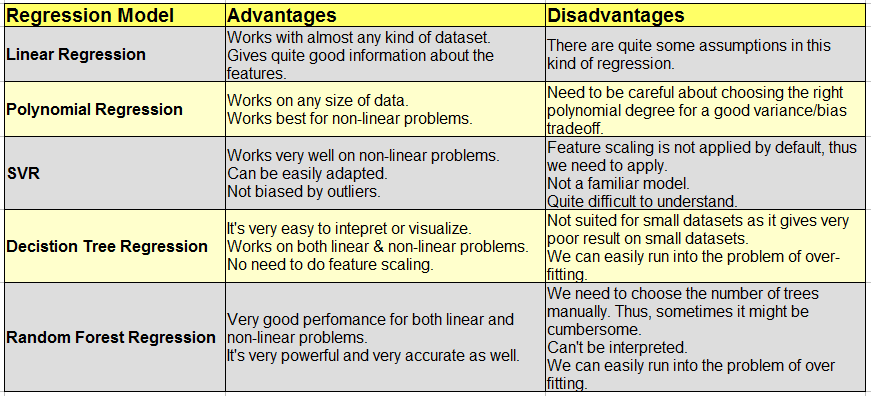
Conclusion
In order to be a great data scientist, we need to do more than we were able to achieve the progress we have never had. Since data science can be learned by anyone with internet access, there will be many data scientists with a set of equal technical skills. Therefore, the 7 factors described above will elevate your data science capabilities to a higher level and make you stand out from the crowd. Although not all data scientists have all the features, we can learn to improve these features in our journey to becoming a great data scientist. The process of transforming ourselves into a better data scientist should go beyond learning technical skills to incorporate personalities as they are highly transferable regardless of the field and industry.

